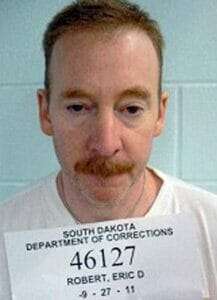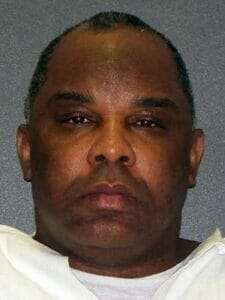
Donald Moeller was executed by the State of South Dakota for the kidnapping, sexual assault and murder of a nine year old girl. According to court documents Donald Moeller would kidnap nine year old Becky O’Connell when she was leaving a convenience store. Becky O’Connell would be sexually assaulted and stabbed to death. Donald Moeller would be arrested after his DNA tied him to the murder. Donald Moeller would be sentenced to death and executed by lethal injection on October 30 2012
Donald Moeller More News
A South Dakota inmate was executed Tuesday night for the 1990 rape and murder of a 9-year-old girl who disappeared after leaving her home to buy sugar at a nearby store so she could make lemonade.
Donald Moeller, 60, received a lethal injection at the state penitentiary in Sioux Falls, marking South Dakota’s second execution this month in an unusual surge for a state that has carried out just two other death sentences since 1913. He was pronounced dead at 10:24 p.m.
Moeller kidnapped Becky O’Connell from a Sioux Falls convenience store, where she’d gone to buy sugar to make lemonade at home. He drove her to a secluded area near the Big Sioux River, then raped and stabbed the girl. Her naked body was found the next day; investigators said her throat had been slashed.
Becky’s mother, Tina Curl, has been steadfast in her wish to watch Moeller die, even raising funds to cover the expenses to make the 1,400-mile trip from her home in New York state to Sioux Falls for the execution.
“He watched my daughter take her last breath. I want to watch him take his last breath,” Curl told The Associated Press in August. “I’m doing this for her and for me.”
Moeller initially was convicted in 1992, but the state Supreme Court overturned it, ruling that improper evidence was used at trial. He was again convicted and sentenced to die in 1997. The state Supreme Court affirmed the sentence, and Moeller lost appeals on both the state and federal levels
Though he fought his conviction and sentence for years, Moeller in July he said he was ready to accept death as the consequence of his actions. He admitted for the first time in court that he killed the girl.
“I killed. I deserve to be killed,” he said.
But even as Moeller insisted he was ready to die, several motions were filed on his behalf to stop the execution despite his protests.
Earlier this month, a federal judge dismissed a pending suit challenging South Dakota’s execution protocol after Moeller insisted he wanted no part of it. Moeller also distanced himself from a motion filed by a woman with loose family ties who argued that his decades in solitary confinement had made him incapable of voluntarily accepting his fate. That motion was dismissed Monday.
Moeller’s execution comes just two weeks after the Oct. 15 execution of Eric Robert for killing South Dakota prison guard Ronald “R.J.” Johnson during a failed escape attempt. Before that, the last execution in South Dakota was in 2007, when Elijah Page died by lethal injection for the murder of Chester Allan Poage, who was abducted and killed in a scheme to burglarize his mother’s home.
In 1947, George Sitts was electrocuted for killing two law enforcement officers. And in 1913, Joseph Rickman was hanged for the murder of a woman and her daughter.
They were among 17 inmates executed since 1877, the oldest of which came during the days of the Dakota Territory.








